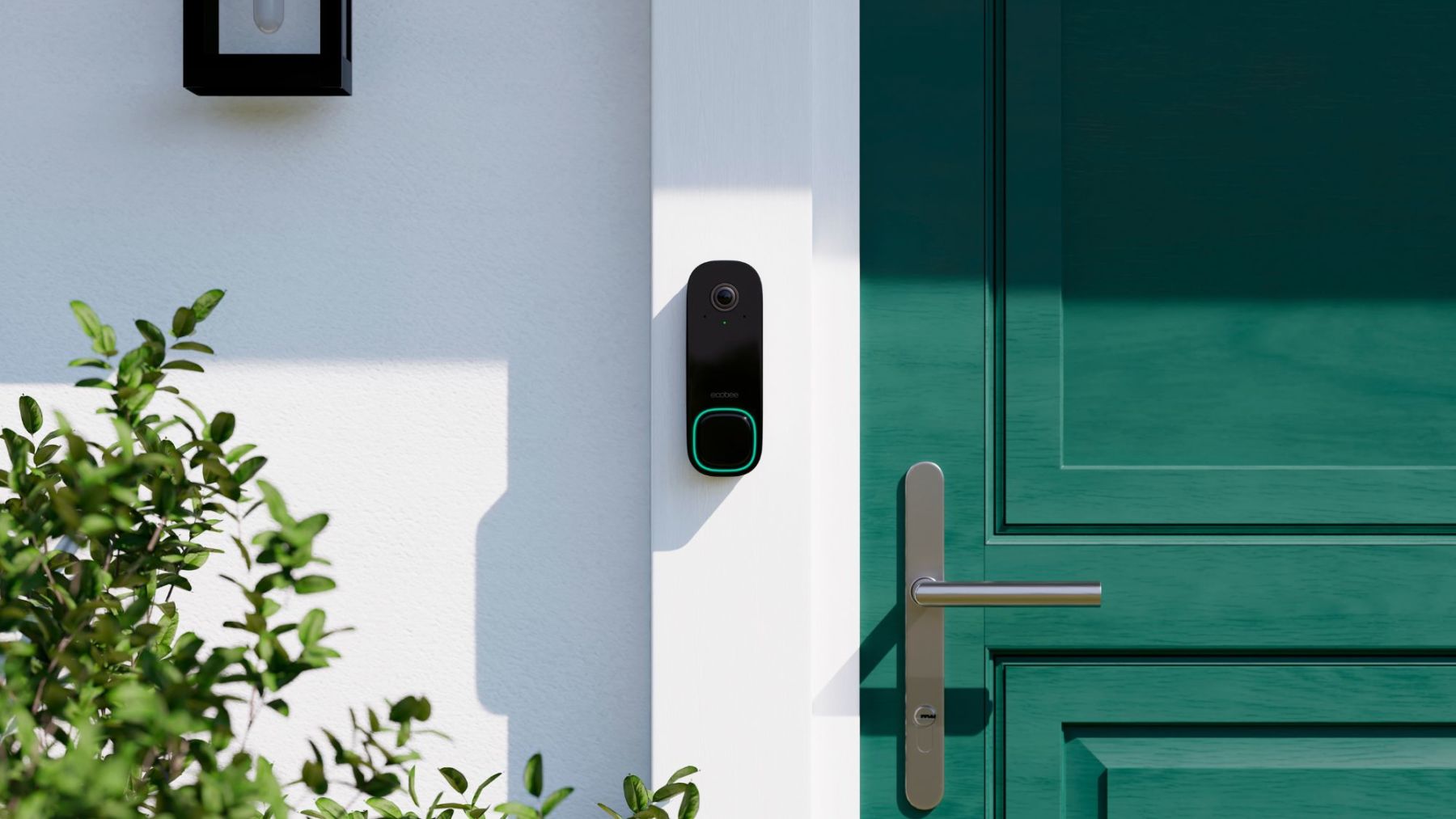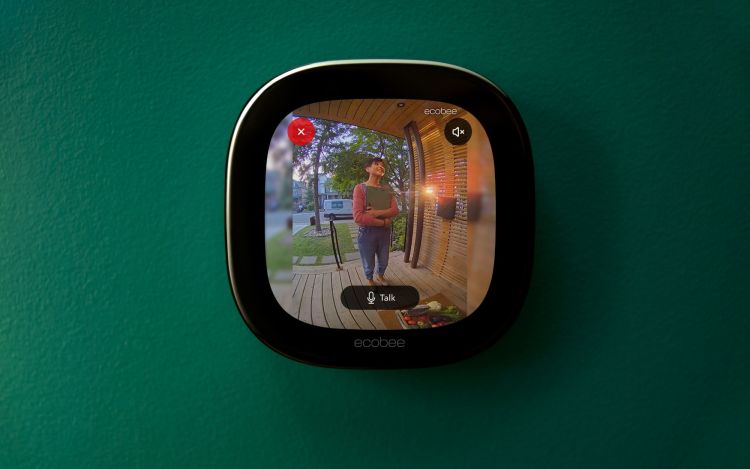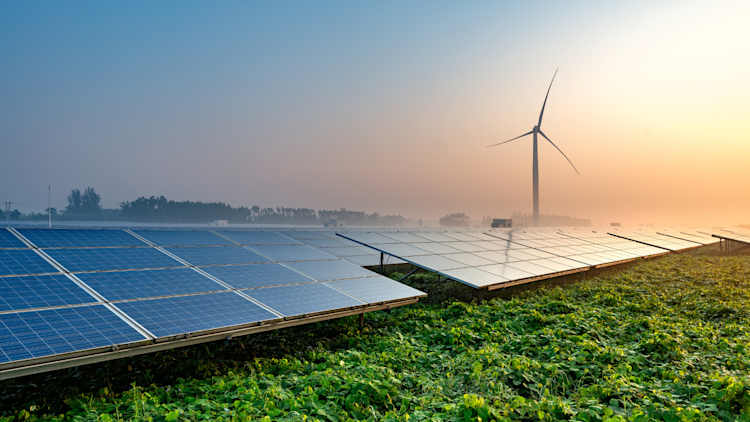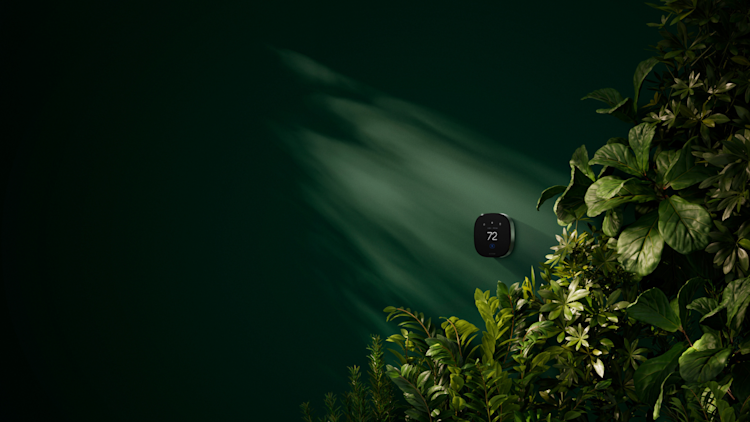How Sustainability Guided the Creation of ecobee's New Smart Doorbell Camera
Learn how sustainability and longevity guided the approach to designing ecobee's new Smart Doorbell Camera.
by ecobee on 04/22/2024 in Better Planet
4 min read

At ecobee, our dedication to eco-conscious choices is at the heart of every innovation, including our latest breakthrough: the Smart Doorbell Camera. We sat down with Brendan Coady, staff product manager at ecobee, to delve into the meticulous decisions that contribute to both exceptional performance and environmental responsibility. In this exploration, we uncover how our commitment to quality and longevity drives the sustainable design principles behind this cutting-edge device.
ecobee Citizen: What’s the connection between durability and sustainability, and how did it affect the materials chosen for the new doorbell camera?
Coady: Quality matters. Planned obsolescence and frequent upgrade cycles contribute to a short lifespan of many devices, causing them to end up in a landfill.
The Smart Doorbell Camera uses top-of-the-line materials such as aluminium and glass to give it a high-end premium finish that can withstand both hot and cold. The camera unit was designed without batteries allowing for IP65 waterproofing and it can operate between −25°C/–13°F to 45°C/113°F.
By designing for quality, we reduce the amount of virgin materials extracted from the Earth and eliminate greenhouse gas emissions during mining, manufacturing, and transportation.
The key point here is that the most sustainable product is the one that lasts the longest.
The most sustainable product is the one that lasts the longest.
ecobee Citizen: In what other ways was protecting the environment an important factor for the new Smart Doorbell Camera?
Coady: We know that using high-quality materials and building for long-term durability help minimize landfill use and resource depletion. I think how we handled the Smart Doorbell Camera battery problem is indicative of how we are trying to act as good environmental stewards.
As a rule, ecobee tries to avoid using lithium-ion batteries due to their fixed lifespan. Some companies seal the battery inside the doorbell, and then prompt the homeowner to replace the doorbell every two to three years. Right away, we knew we weren’t going to go that route. We want our products to become fixtures in your home for years to come.
Instead, we housed the battery inside the home, in the chime adapter, where it’s sheltered from adverse weather conditions and extreme temperatures. Not only does the battery last longer indoors, with an expected life expectancy of 10 years, but when it is time to replace it, we made changing and recycling the battery easy with clear instructions printed on the chime adaptor and also posted on ecobee.com/recycling.
Building for durability and longevity—our products are fixtures meant to last in your home for years to come.

ecobee Citizen: How confident are you that the Smart Doorbell Camera will stand the test of time?
Coady: Very confident. This product has undergone rigorous testing. We spent hundreds of thousands of hours testing the quality of the doorbell in extreme conditions such as dousing it with a relentless 3-hour soak, baking it at 45°C(113°F) with scorching sunlight, and subjecting it to bone-chilling temperatures of –25°C(–13°F) to ensure it can withstand the cold. While other products may be built for obsolescence, ecobee’s products are built for resiliency.
Sustainability has been woven into our DNA since our early days in 2007. From inventing the Smart Thermostat to generating the savings equivalent of taking all the homes in Chicago and LA off the grid for a year, to our latest product, Smart Doorbell Camera, we are committed to minimizing environmental impact, emphasizing efficiency, and prioritizing product longevity.
Read more about our sustainability journey:
• How ecobee Helped Keep the Lights on Through an Extreme Midwest Heatwave
• ecobee’s Search for a Green Home in the Cloud
Did you enjoy this article?
Thanks for letting us know!






